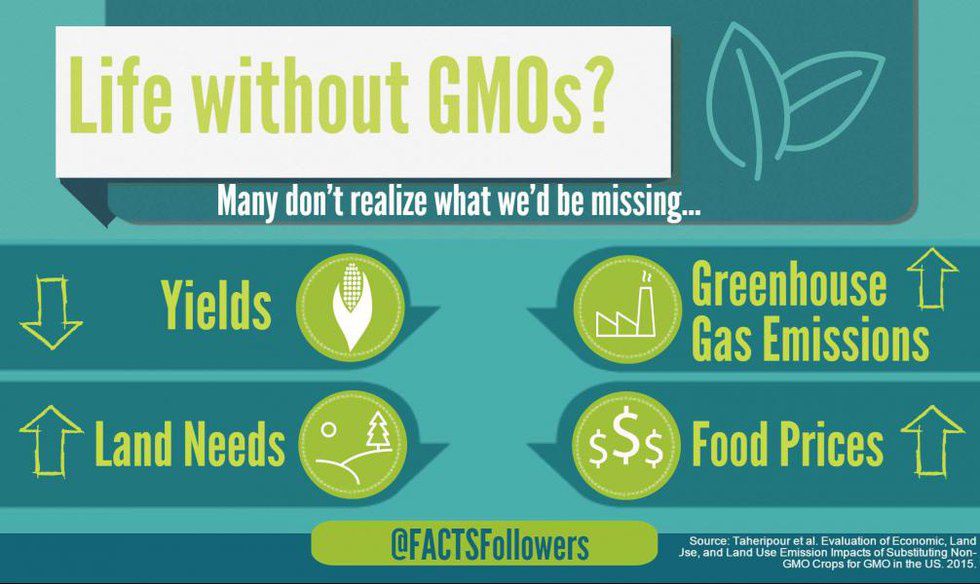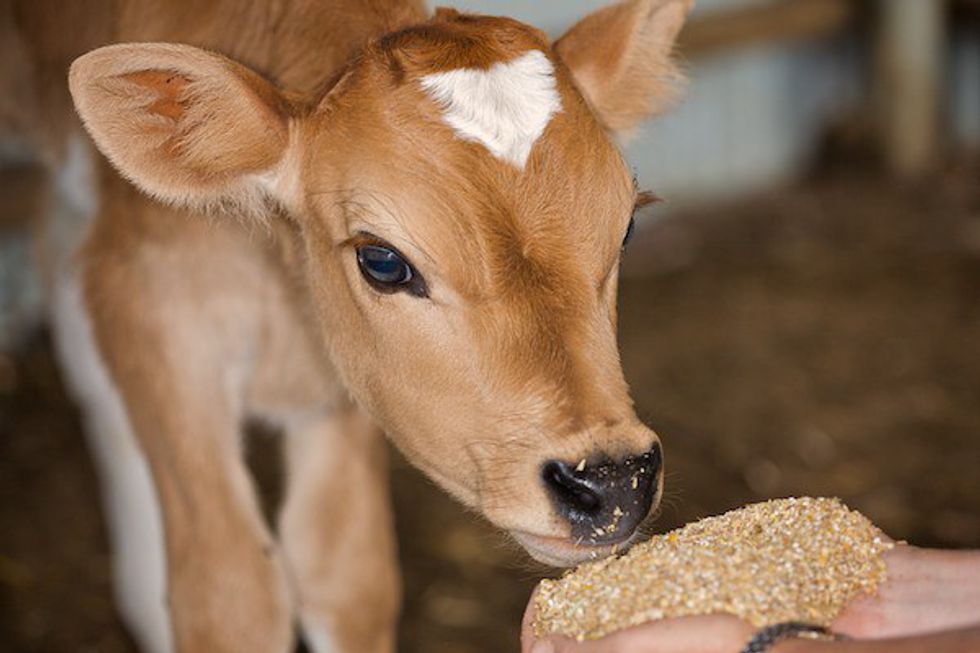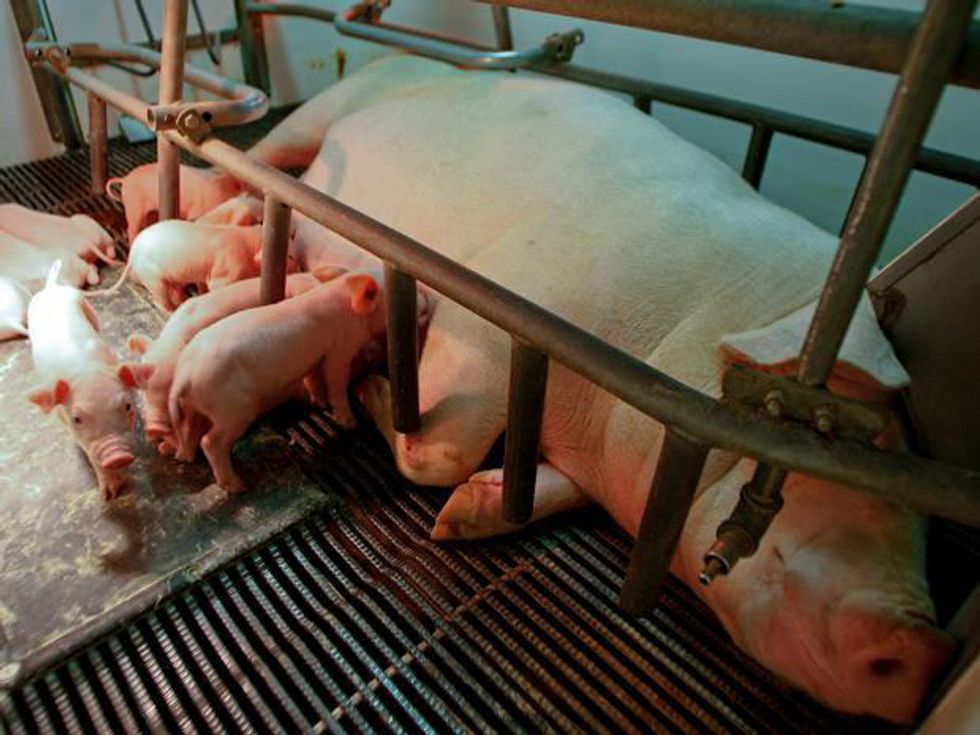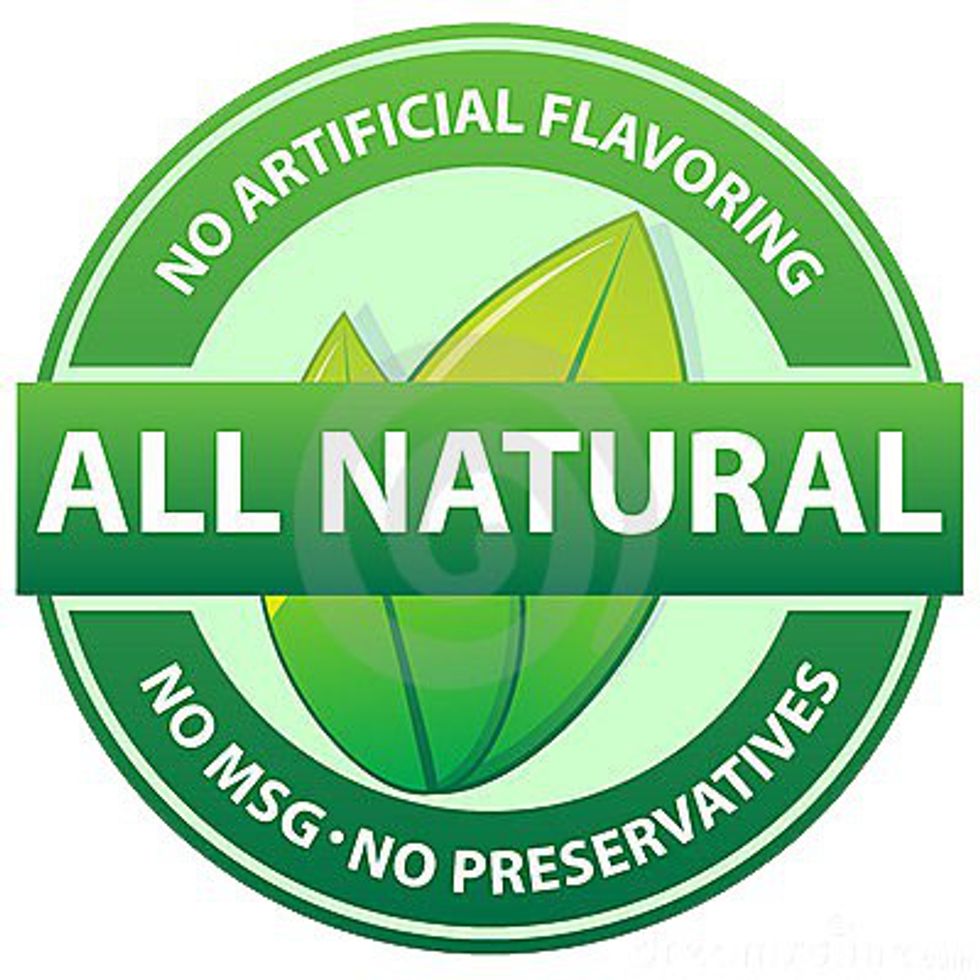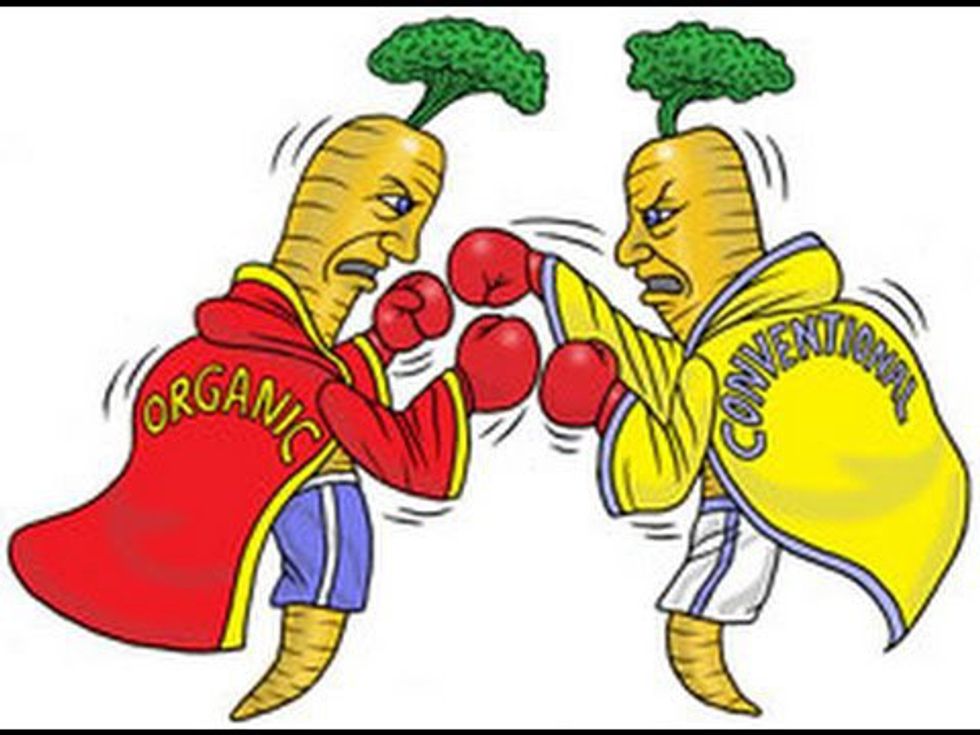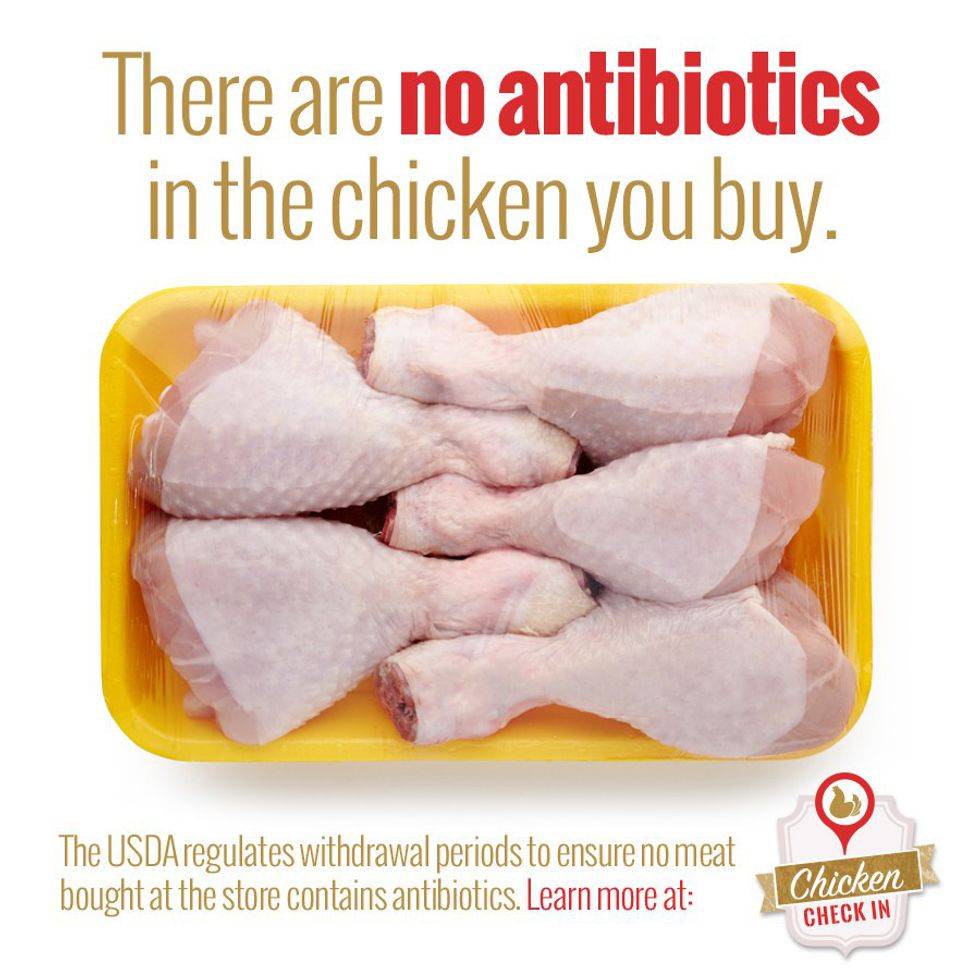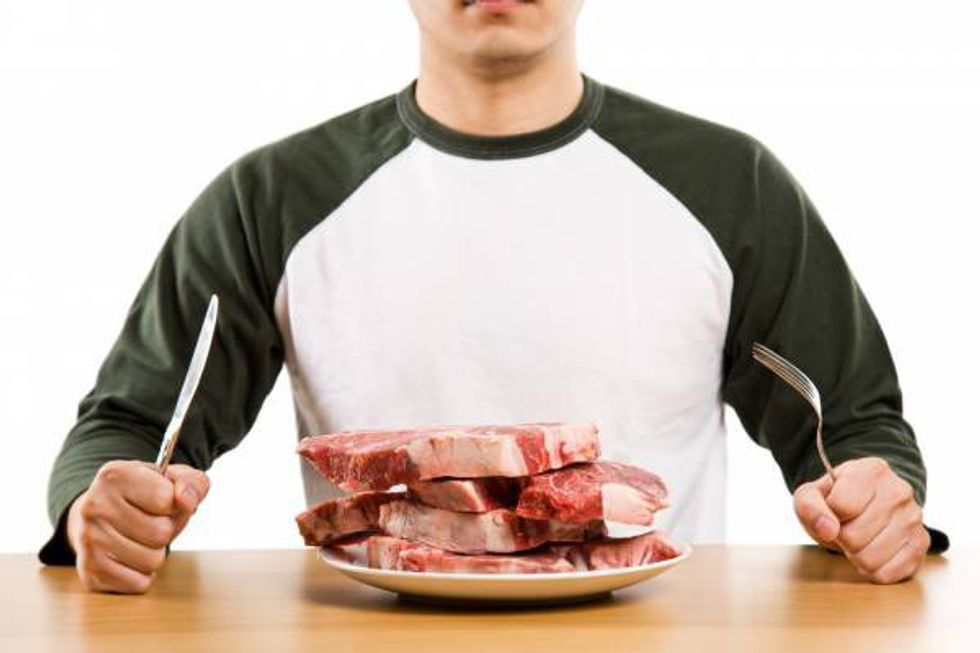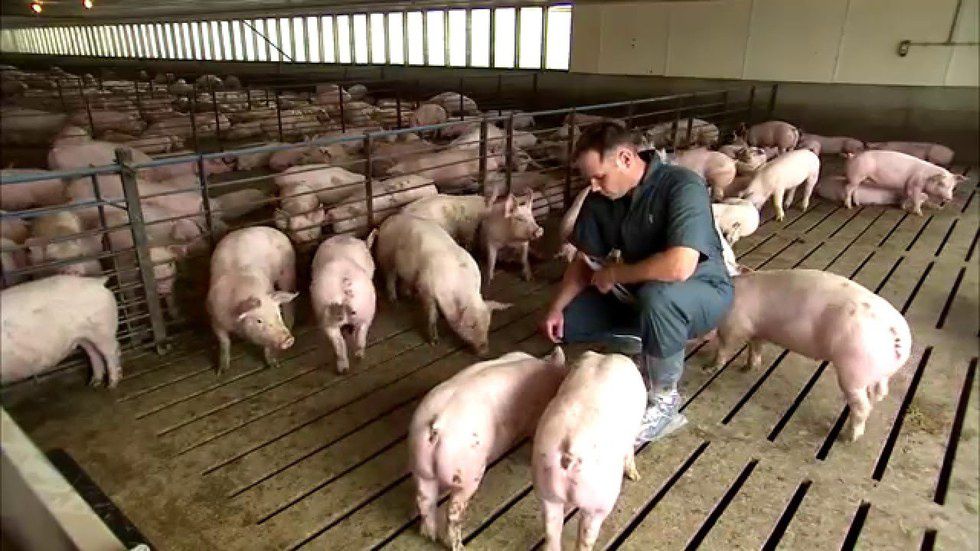Agriculture. It's all around you. You may not even realize it. From the clothes you wear to the food you eat, even that couch you're sitting on; It all links back to the agriculture industry. What about all of the things you hear in the media? Well, here are some facts that you may not know about this amazing industry.
1. Ninety-seven percent of all U.S. farms are family owned.
It's true! Factory farms are a rather unrealistic idea. Many of our U.S. farms have been owned by the same families for many years. Running a successful farm also relies heavily on knowledge of the local soil, weather, and pest conditions. The truth is that a bunch of men in suits just don't have the knowledge needed to run a large-scale farm.
2. GMOs are safe.
Genetically modified organisms(GMOs) have been a hot topic in the media in recent years. But, did you know they are not only helping to feed the growing population but they are are also helping the environment? Farmers today are growing five times as much corn per acre than they did in 1930, and they are doing it with 37 percent less pesticide use. Also, a little-known fact about GMOs is that there are only 8 GM crops grown in the U.S. (I could go on and on about this topic alone, but I encourage you to do some research on it yourself too. Visit GMOAnswers.com to find answers to your questions).
3. Farmers do care about their animals.
The media has blown up with photos of farmers beating their livestock and keeping them in terrible conditions. The truth is, farmers do care. Their livestock is their livelihood, and if animals are put under undue stress, it won't produce a quality product. A farmer would never put their livestock in any environment that they wouldn't be comfortable in. Many of the conditions labeled as "cruel" appear that way only because the public does not know the needs or temperament of those animals.
4. Gestation crates are a good thing.
I'm sure many of you have seen an article or two stating that gestation crates are an inhumane way to house sows (adult female pigs). The truth is that sows are aggressive. Keeping them in gestation crates not only allows the pigs to stay safe, but it allows the farmer to give each pig individualized care. The bottom line is that gestation crates are the humane way to breed sows. After a sow gives birth (farrows), they are caged in farrowing crates (such as the one pictured below) to help protect the piglets. Get in contact with any breeder, and they will be happy to explain the need for gestation crates better than I can.
5. "All Natural" labels mean nothing.
Food labels in the U.S. are plastered with the words "all natural." Consumers like those buzz words. The truth is that the FDA has not defined the term "all natural." That means that there are no guidelines that food companies must meet before being allowed to place the phrase on their packaging. Do your research and make sure you do not pay extra for a word on a cardboard box!
6. We don't hate organic farming.
We'll be honest, organic farming practices aren't our cup of tea. But, we don't really have anything against the practices themselves. What we aren't so fond of is the backlash that conventional farming methods have gotten because of the popularity of the organic farming industry. We don't spread nasty rumors about you; so, please don't do it to us.
7. Your burger doesn't have antibiotics in it!
Remember the above statement? Farmers care about their animals. When their livestock gets sick, they give them medicine, just like you would give to your child if he/she were sick. Before an animal can go to harvest, the antibiotic must be completely out of its system. If a cut of meat tests positive for antibiotics, it cannot be sold.
8. Meat is good for you.
Many people are beginning to cut meat, or at least red meat, out of their diets, for fear that it will cause them major health problems down the road. While it is true that you should not be consuming a 20oz steak on a daily basis, it is true that meat is very good for your body. Meat, specifically red meat, is chockfull of vitamins and minerals. In fact, a single 3oz serving of red meat contains 10 essential nutrients in only about 150 calories. As for the claims that red meat causes cancer, a simple search will show you that all research in this area has been inconclusive meaning that it has not been proven to cause cancer any more than your organic, "all-natural," non-gmo salad.
9. We are here to answer your questions.
We spend our lives learning about this industry. The things that you are confused about are things that we know forwards and backward. We may not explain things simply because we don't think that it needs explaining. We do not know what you don't know. If you have a question ask anyone in the agriculture industry. We are friendly people and we like to answer your questions. Honestly, we'll be happy that you asked instead of assuming the negative.
If nothing else, I hope that you remember to not believe everything that you hear in the media. Many of the groups that publish articles against the agriculture industry have never actually experienced it first-hand. If you have a question about the agriculture industry, don't assume anything, and don't ignore it. Those of us involved in the industry want to give you an answer, don't be afraid to ask! Don't stop learning here. Please do some research of your own. You could be surprised by what you'll find.





